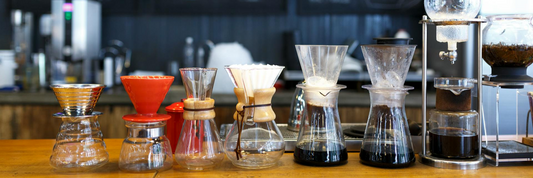Properly storing beer is crucial to preserving its taste, freshness, and quality. Whether you're a beer enthusiast, a home entertainer, or someone who enjoys the occasional drink, understanding how to store beer correctly can make all the difference. In this guide, we’ll explore the best practices for storing beer and ensuring it stays enjoyable for as long as possible.
Why Proper Beer Storage Matters
The impact of storage on beer taste and quality
Beer is a delicate beverage, and improper storage can lead to changes in its flavor, aroma, and overall quality. Exposure to heat, light, or incorrect temperatures can cause the beer to spoil or lose its freshness much sooner than expected.
How Long Does Beer Last? Why Does Beer Go Bad

Common beer storage mistakes
Storing beer at inconsistent temperatures, exposing it to direct sunlight, or keeping it in overly warm areas are common mistakes that can damage beer. In extreme cases, beer can even develop “skunky” flavors, which occur when it's exposed to UV rays.
How long does beer last if stored correctly?
The shelf life of beer varies depending on the type:
- Lagers typically last 6-12 months.
- Ales, especially stronger varieties, can last 1-2 years.
- IPAs and stouts may last up to 6-8 months if stored correctly, but certain high-alcohol beers may be aged for even longer.
Optimal Beer Storage Conditions
The Impact of Temperature on Beer Storage
Temperature plays a major role in beer storage. Storing beer too cold can mute its flavors, while too much heat can lead to oxidation, making it taste stale.
- Lighter beers (lagers, pilsners, wheat beers): Best stored at 45°F-55°F (7°C-13°C).
- Stronger ales and stouts: Store at slightly warmer temperatures, around 50°F-55°F (10°C-13°C).
| Beer type | Ideal storage temperature |
| Pilsners and Lagers | 40 - 45° F |
| Wheat beers | 40 - 50° F |
| IPA’s | 50 - 55° F |
| Porters and stouts | 45 - 55° F |
| Sours and bocks | 50 - 55° F |
| Barleywines and strong ales | 50 - 55° F |
Can beer be chilled and re-chilled
Yes, beer can be chilled, warmed, and then re-chilled without significant harm to its safety or quality, provided it is stored properly during the process. However, repeated temperature fluctuations can slightly affect the beer's flavor, carbonation, and overall experience, particularly with delicate styles.
Light: How UV Rays Affect Beer
Beer is highly sensitive to light exposure, especially UV rays, which can trigger a chemical reaction that produces off-flavors.
- Brown bottles: These provide the best protection against UV light.
- Green or clear bottles: These allow more light to pass through, so storing them in a dark place is crucial.
Humidity: Balancing Moisture Levels in Storage
Humidity affects beer storage, particularly with bottled beers. Keeping the environment too dry can lead to bottle caps rusting, while overly humid conditions can cause labels to peel. Aim for moderate humidity to avoid these issues.
Upright vs Laying Down: How to Position Beer Bottles
Beer bottles should always be stored upright. This prevents the beer from constantly contacting the cap, which can lead to oxidation and metallic flavors. Unlike wine, which benefits from being stored horizontally, beer maintains its best quality when stored standing.
Storing Beer in the Fridge vs Room Temperature

When to refrigerate beer
If you’re planning to drink your beer within a few weeks, storing it in the fridge is the best option. Refrigeration helps slow down the aging process and keeps the beer fresh. However, for long-term storage, beer can be kept at room temperature as long as it’s in a cool, dark place.
Room temperature storage tips
For those without space in the fridge, certain types of beer can be stored at room temperature, provided the environment is cool (around 50°F-55°F) and away from light sources. Cellars or closets make ideal storage spots.
Can beer go bad if stored improperly?
Yes, beer can go bad if exposed to heat, light, or air. Spoiled beer often tastes stale, sour, or skunky. Look for signs like an unusual smell, off-flavors, or excessive foam upon opening.
Storing Craft Beer vs Commercial Beer
Unique storage needs for craft beer
Craft beer, especially unfiltered and unpasteurized varieties, often requires extra care during storage. These beers are more susceptible to changes in temperature and light, so it’s essential to store them in a cool, dark place and consume them relatively quickly to enjoy their full flavor.
Storage advice for mass-produced beers
Commercial beers, especially those pasteurized and filtered, are typically more stable and can withstand room temperature for longer periods. However, it’s still a good idea to keep them in a controlled environment, as extreme conditions can negatively affect their taste.
Does packaging (can, bottle, keg) make a difference?
Yes, beer packaging affects how long beer stays fresh. Cans offer better protection against light and air compared to bottles, which can be more susceptible to oxidation. Kegs should always be kept cold, as they are not pasteurized and can spoil quickly at room temperature.
How to Store Opened Beer

Proper methods to store partially consumed bottles
Once a bottle of beer is opened, it’s exposed to air, which accelerates the spoiling process. If you don’t finish a bottle, reseal it tightly and store it in the fridge.
How long can opened beer last in the fridge?
Typically, opened beer should be consumed within 1-2 days. While refrigeration can slow the oxidation process, the beer’s flavors will degrade over time.
Can you re-cap or reseal beer bottles?
Yes, there are bottle stoppers designed for beer bottles. These stoppers can help maintain carbonation and keep the beer fresh for an extra day or two.
Storing Beer for Special Occasions or Long-Term
Aging beer: What types of beer can be aged?
Not all beer is suitable for aging, but certain high-alcohol beers, like barleywines, imperial stouts, and some Belgian ales, can be aged for several years under proper conditions.
- Conditions for aging beer: Store beer in a cool, dark place at a consistent temperature of around 50°F. A cellar or wine fridge is ideal for this purpose.
- Taste evolution during beer aging: Over time, aged beer can develop complex flavors, often becoming smoother and richer.
How to prepare beer for events
If you’re hosting an event, ensure your beer is chilled properly in advance. For quick cooling, placing beer in an ice bath with salt can significantly speed up the process.
Beer storage by packaging
How to store beer cans
Beer cans should be stored in a cool, dry area at temperatures appropriate for their nature, but always above freezing. Cans should be kept upright. If you intend to preserve beer for an extended period of time, keep it in a cold, dark environment that is upright and has minimum movement.
How to store beer bottles
Beer bottles may be stored in the same way as cans are: cold, dry, and upright. When keeping beer bottles for an extended period of time, keep them in a dark spot, much like cans. Some beer bottles are made of brown glass, which shields the beer from UV radiation and helps keep it fresh.
How to store beer growlers
Growlers are frequently made of brown glass, which protects beer from UV radiation better than clear glass. Make sure your growler is well sealed and stored in a cold area. Beer held in growlers has a lower shelf life than mass-produced beer since it is unlikely to be pasteurized.
How to store beer kegs
Maintain a steady temperature while storing beer kegs. Keep beer kegs in a dark location, such as a basement, refrigerator, or garage. Make sure your kegs have a pressure of 10-12 psi.
How to store corked beer
Corked beer is best kept upright. Corked beer may age quicker than other forms of beer, thus it is best to consume within a year and a half of bottling.
Conclusion: Ensuring Your Beer Stays Fresh and Tasty
Proper beer storage is essential for maintaining the beverage’s quality, flavor, and freshness. By controlling the conditions—temperature, light exposure, and positioning—you can enjoy your beer the way it was intended. Whether you’re storing beer for the short-term or aging it for a special occasion, following these guidelines will ensure that every sip is a perfect one.




